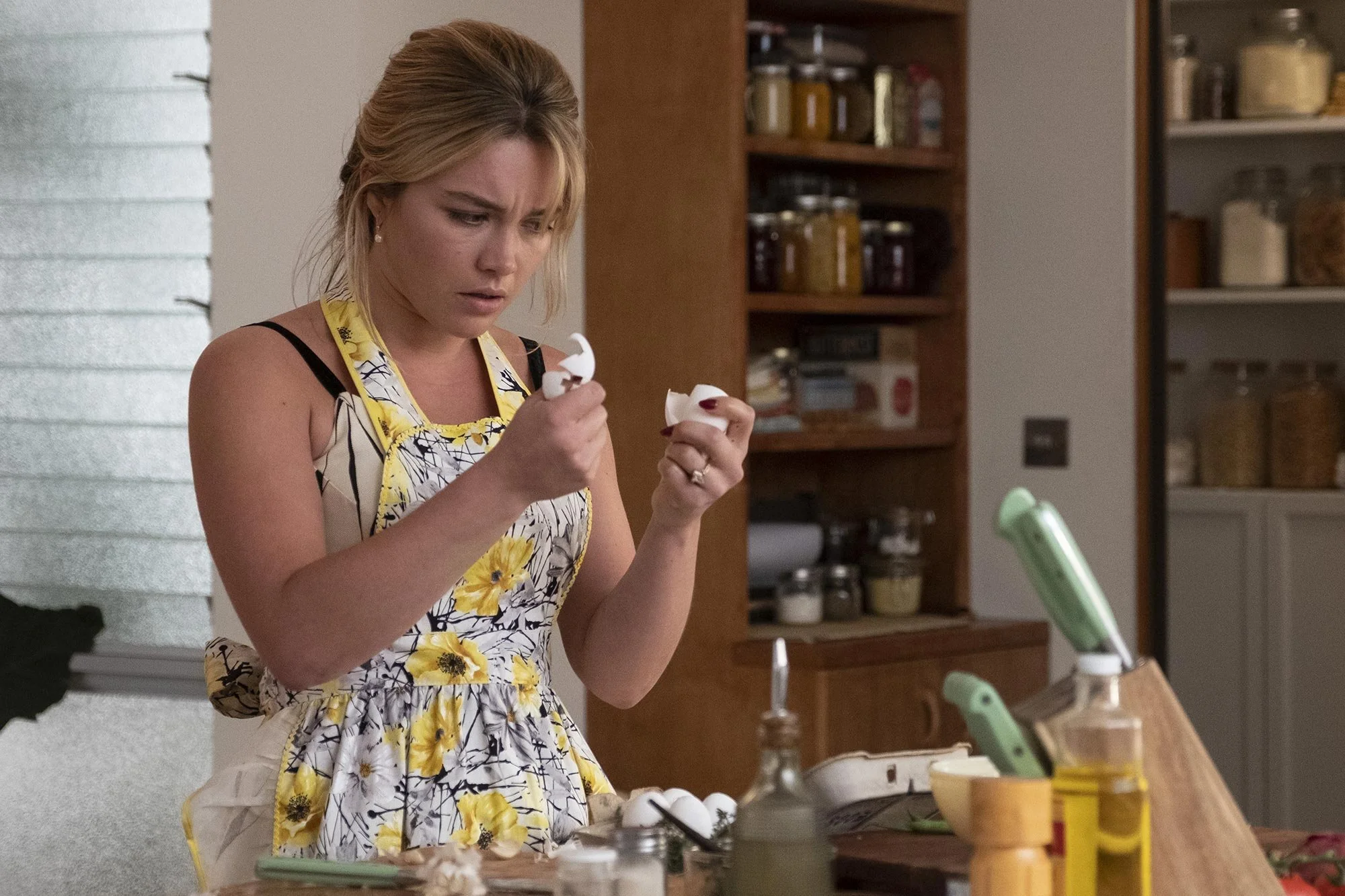Don't Worry Darling
Olivia Wilde’s Booksmart felt like the kind of polished, confident work of a filmmaker with multiple features to her name — not merely a short and a pair of music videos. So it makes sense that the actor-turned-director would follow up one of the decade’s best comedies with something as ambitious as Don’t Worry Darling, a captivating gambit that excels at sustaining a mystery but doesn’t quite stick the proverbial landing.
The allure here is rooted in figuring out precisely what’s going on with The Victory Project, an Edenic post-WWII community in “the desert” where husbands drive off to do top-secret work each morning in Edward Scissorhands synchronicity; their wives cook, clean, and exercise; and the couples reunite each evening for a multi-course supper and copious cocktails, often in the form of elaborate dinner parties.
Thanks to Katie Byron’s exquisite production design and crisp cinematography from Matthew Libatique (Black Swan; A Star is Born), the world-building occurs almost effortlessly, inviting viewers into a patriarchal neighborhood where MAGA fantasies of returning to how things were in the 1950s have come true.
Just how and why such a society has emerged slowly invades the mind of Alice (Florence Pugh), who takes it upon herself to find answers after a series of strange events convince her that all is not well. Reunited with one of her Booksmart scribes, Katie Silberman, Wilde sustains immense tension as Alice pushes through the cracks in The Victory Project’s veneer, efforts that test the limits of the bonds with her husband Jack (Harry Styles), neighbor Bunny (Wilde herself), and Frank (Chris Pine), the enigmatic program mastermind who holds an unnatural pull over those in his employ.
The psychological terror that ensues is a wonder to behold, but Don’t Worry Darling ultimately struggles mightily in its revelations. Up to the big reveal, the filmmakers have done a phenomenal job focusing on Alice’s experiences, rarely straying from her perspective — in turn making her journey that of the viewer. But in exposing “the big secret,” scenes from the past that Alice didn’t witness and couldn’t have access to are shown, and while informative, these moments reek of studio interference and focus groups’ desire for greater clarity.
Though the answers may have more seamlessly arisen with a smarter screenplay, the concepts explored nevertheless remain intriguing, even if questions loom after the credits roll. But these weaknesses aren’t even close to overshadowing the plentiful perks that the story offers up to that point, and keep Wilde as a filmmaker to watch.
Grade: B. Rated R. Now playing at AMC River Hills 10, Carolina Cinemark, the Fine Arts Theatre, and Regal Biltmore Grande.
(Photo: Warner Bros.)




